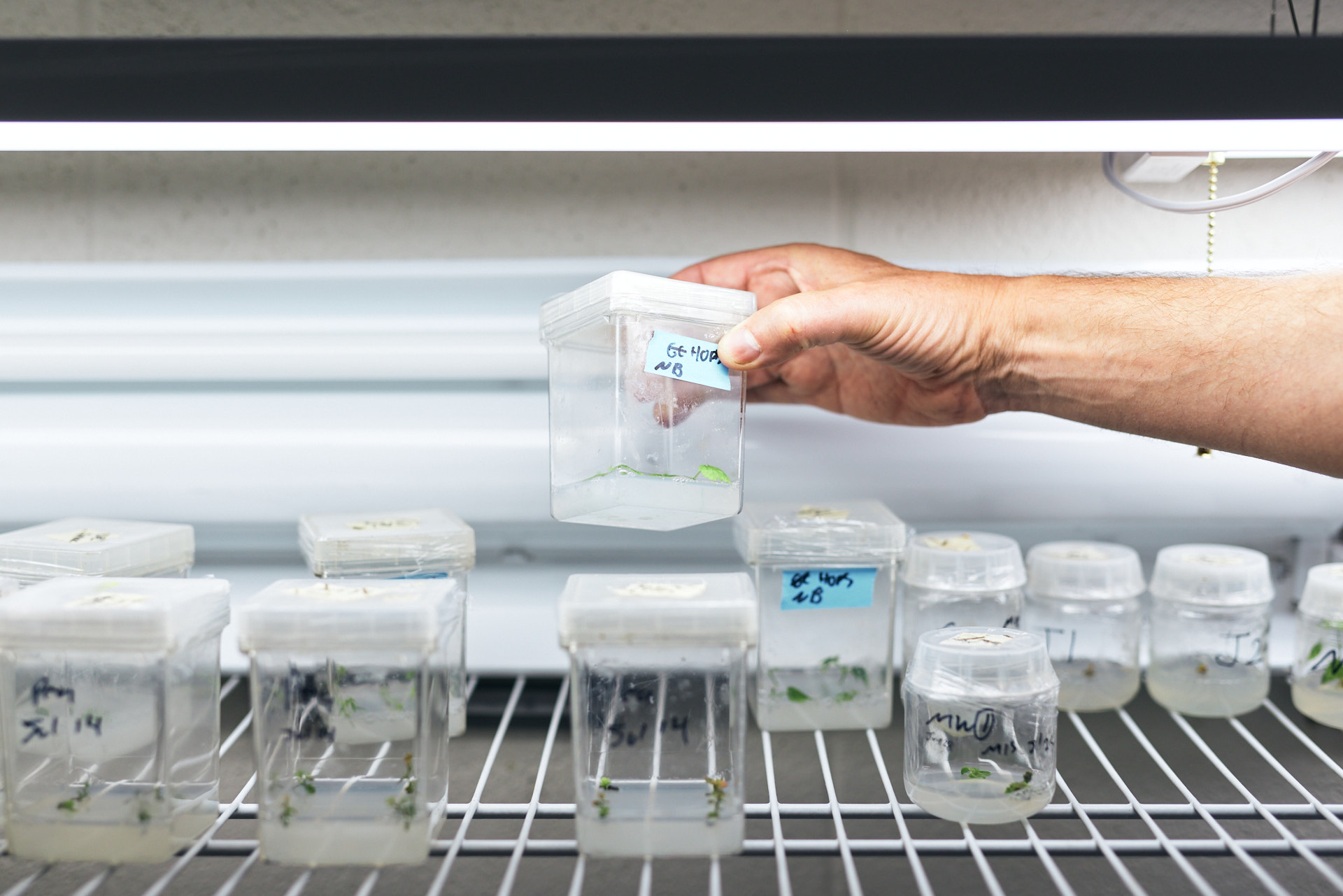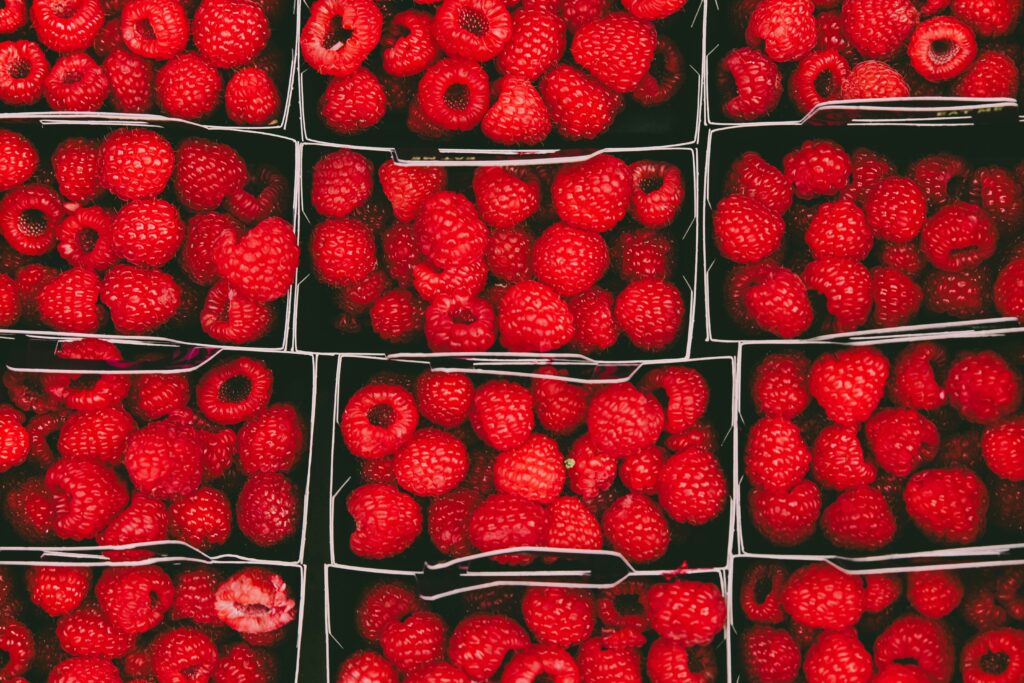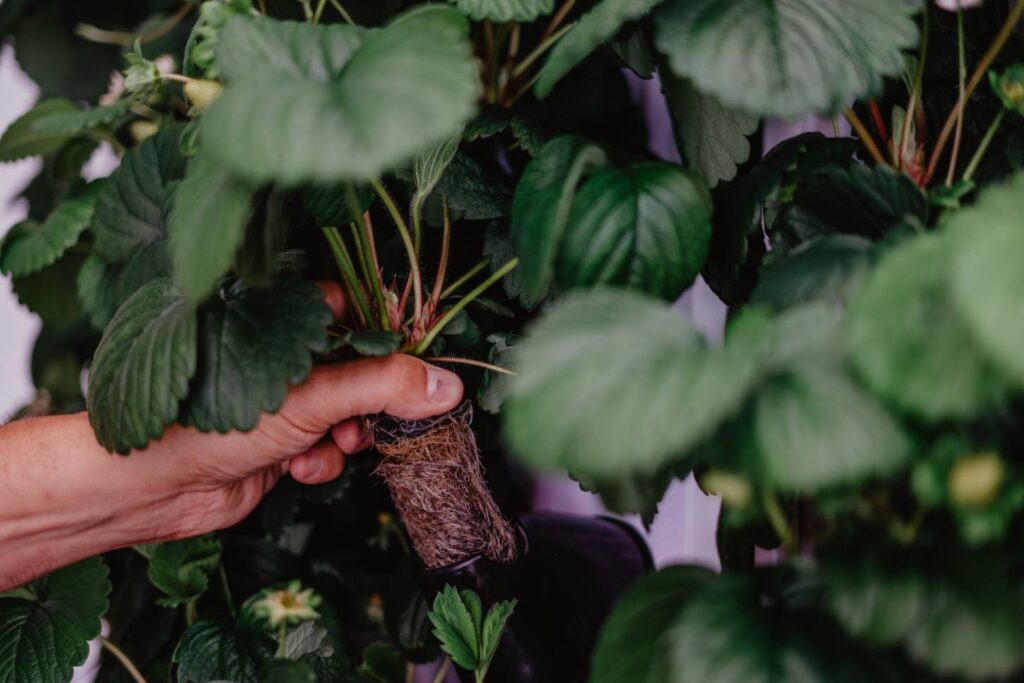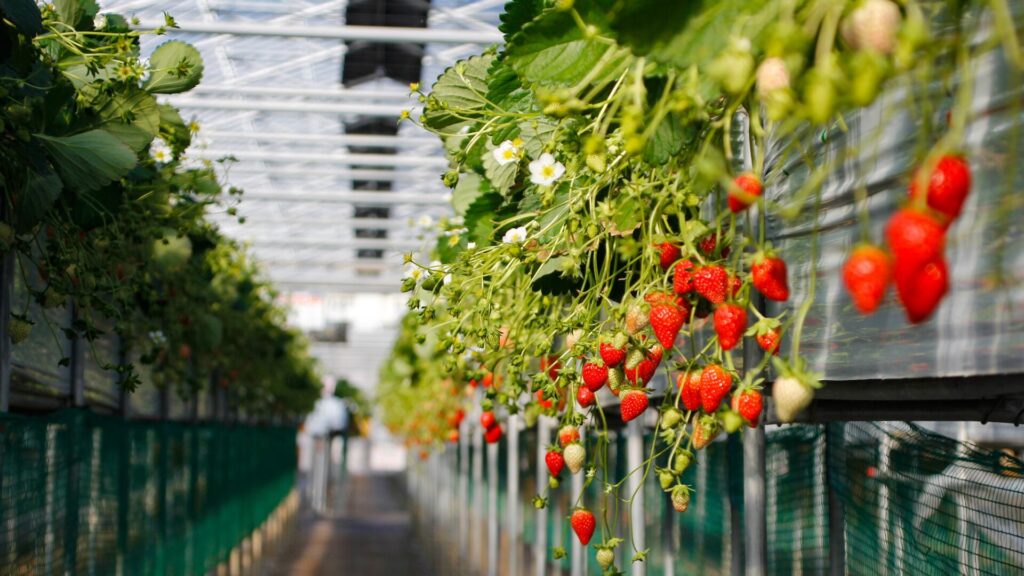Scaling Phase: The Next Crop of Canadian Innovation.
The future of farming is here.
Now in the Scaling Phase, we are advancing the development and real-world testing of tools, technologies, and systems to grow berries year-round—sustainably, competitively, and at scale. By proving what’s possible with controlled environment agriculture, these innovations have the potential to unlock new solutions for producing a wider variety of fruits and vegetables out of season, strengthening Canada’s food system for the long term.

Greenhouse production system to deliver “Made in Canada” off-season blueberries, raspberries and blackberries.
Simon Fraser University
“Our solution is the most cost-effective production system, integrating deep horticultural knowledge, the right CEA infrastructure, and the best available genetics.”
Rodrigo Santana, CEO BeriTech Inc.
Building on their successful Shepherd Phase collaboration, Simon Fraser University and BeriTech Inc. are advancing a high-intensity, multi-berry production system designed to deliver delicious, nutritious fruit year-round. Their approach to maximizing yield combines greenhouse production with innovative techniques to manipulate plant physiology and carefully timed cropping cycles through intercropping blueberries, blackberries, and raspberries.
Throughout the Scaling Phase, the team will work closely with leading growers and other partners to test and commercialize their system in multiple Canadian climatic regions.
Principal Applicant:
Jim Mattsson, PhD, Simon Fraser University
Berry: blueberry, raspberry, blackberry
Collaborators:
BeriTech Inc.
University of British Columbia
Fall Creek Nursery
Bergen Farms Produce
Fenwick Berry Farm
Signify
Koppert
Ludvig Svensson
Delphy
Northwest Plant Company

Controlled environment agriculture, elevated, with autonomous pollination technology.
Toronto Metropolitan University
“The most important pieces to solve for fruit production in Canada include autonomous pollination, and predictability in food supply chains.”
Drs. Habiba Bougherara and Lesley G. Campbell, Professors Toronto Metropolitan University
Toronto Metropolitan University is developing the “MoFarm”: a modular, vertical farming system for continuous, year-round raspberry production. Its multi-layered design can support multiple types of crops at various stages, maximizing yield and efficiency. One of the key features of this farm will be a patented pollination and air circulation system to achieve consistent autonomous pollination. This will surpass the challenges of incomplete bee pollination under short day lengths in greenhouses and artificial lighting in vertical farms.
Principal Applicant:
Habiba Bougherara, PhD, Toronto Metropolitan University
Co-applicant:
Lesley G. Campbell, PhD, Toronto Metropolitan University
Berry: raspberry
Collaborators:
Montel Inc.

VertBerry: a vertical, modular indoor bioponic system for cultivating transplants and berries.
Université Laval
“It’s really important to be self-sufficient, to preserve our assets, and even to have innovative technologies in agriculture, because a country must have food autonomy.”
Dr. Martine Dorais, Professor Université Laval
Université Laval is scaling a modular aeroponic platform for year-round berry production and to provide resilient, high-performance strawberry seedlings for indoor, greenhouse, and open-field growers. By integrating phenotyping and microbiome expertise, the team aims to increase their yield and significantly improve energy efficiency—plus grow healthier plants and tasty fruit—with no pesticide residues. VertBerry will combine precise rootzone control, energy-efficient HVAC and lighting, and waste-heat recovery. Scalable and adaptable, VertBerry offers a flexible, sustainable solution to strengthen Canada’s food system from seedling to harvest.
Principal Applicant:
Martine Dorais, PhD, Université Laval
Co-applicants:
Steeve Pepin, PhD, Université Laval
Charles Goulet, PhD,Université Laval
Berry: strawberry
Collaborators:
Cultivar
Ulysse Biotech
Farm3
Les Productions Horticoles Demers
Gush
A. Massé Nursery
Savoura Group
Ministry of Agriculture, Fisheries and Food of Quebec / Ministère de l’Agriculture, des Pêcheries et de l’Alimentation (MAPAQ)

Autonomous, net-zero greenhouse strawberry production.
University of Guelph
“These technologies are helping us optimize all of the growing conditions in the greenhouse to produce strawberries year-round with zero carbon emission, significantly increased yield, and reduced energy usage, production costs, and nutrient solution discharge.”
Dr. Youbin Zheng, Professor University of Guelph
The team at the University of Guelph and Agriculture and Agri-Food Canada (AAFC) is scaling a hybrid greenhouse-vertical farming system designed to maximize energy efficiency and eliminate fossil fuel use for heating and dehumidification. This innovative approach uses natural sunlight and smart lighting that automatically adjusts to electricity prices and recycles and reuses heat, reducing costs and carbon footprint. With an AI-driven Rootzone Management System (ARMS) and fully net-zero design, this system boosts yields up to six times more than conventional greenhouses.
Principal Applicant:
Youbin Zheng, PhD, University of Guelph
Co-applicants:
Xiuming Hao, PhD, Agriculture and Agri-Food Canada (AAFC)
Quade Digweed, Agriculture and Agri-Food Canada (AAFC)
Berry: strawberry
Collaborators:
Agriculture and Agri-Food Canada (AAFC)
South Essex Fabrication – Center for Horticultural Innovation
Sollum Technologies
Climate Control Systems
Hoogendoorn America
Ontario Ministry of Agriculture, Food and Agribusiness (OMAFA)
Meteor Systems – North America
University of Windsor
